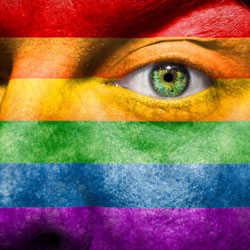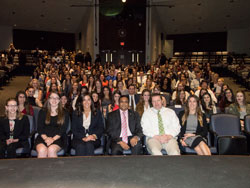Recent studies indicate that millennials are more accepting of homosexuality than people of the previous generation.
Additionally, people find homosexuality to be more acceptable than casual sex, or two adults engaging in sexual activity that have no interest in starting a relationship. When engaging in casual sex, the romance of a relationship is absent, and individuals participate solely for the physical pleasure.
Dan Cox and Robert P. Jones from the Public Religion Research Institute conducted a study titled How Race and Religion Shape Millennial Attitudes on Sexual and Reproductive Health. They observed the moral judgements of various sexual conduct among young people and found that the current generation thinks that sex between two people of the same gender (42 percent) is more acceptable than casual sex between two adults that have no intention of forming a relationship (37 percent).
To obtain the data, the researchers conducted an online survey asking various questions to 2,314 millennials ages 18 to 35. According to the researchers, the survey was conducted online because it involved such sensitive questions regarding abortion, birth control, and homosexuality, so it was imperative that people participated in a comfortable environment, such as their own home. Had the studies been conducted elsewhere, people could have felt compelled to answer a certain way.
Although only a difference of five percent, the results stand in stark contrast to past reports. In previous years, homosexuality was less welcomed than casual sex.
Previous generations, such as the baby boomer generation, primarily did not see casual sex as morally wrong, but were strongly opposed to same-sex marriage.
Laurel Weber, an openly gay senior communication student, said, “I think homosexuality is more accepted today simply because times have changed.”
Freshman criminal justice student David Hernandez said he feels the data reflects a changing society that is on its way to accepting numerous lifestyles. “I feel that homosexuality has become more popular in society and instead of neglecting these homosexuals, society finds ways to accept them,” said Hernandez. “We as people need to be more accepting toward forming a more complex, unique society.”
Weber said that a very liberal, open-minded way of life is more common. The former President of All Lifestyles Included (ALI) said, “There seems to be less public stress of rigid religion.”
The aim of the study was to compare the moral attitudes of the current generation with those of the past. Cox and Jones said they believe that the findings of their study will influence the future generations.
In recent years, the same-sex marriage movement has gained a tremendous amount of support, and parades and marches celebrate the homosexual culture. The rise in momentum is a result of changing attitudes in young people. According to a 2013 PEW Research Center Study, people born after 1980 are 21 percent more likely to be accepting of same-sex marriage than are their older counterparts.
Austin Skelton, freshman business student and member of Monmouth University’s Student Government Association (SGA) said that the acceptance of homosexuality directly correlates to changes in society. “Homosexuality has been more accepted because as society progresses and advances, people become more open minded toward controversial issues that regard a person’s identity, such as homosexuality,” said Skelton.
Additionally, Skelton believes that the rejection of casual sex as morally acceptable may be a result of immense double standards toward women. “Casual sex has always been controversial because society has had a double standard for women in which they are judged harshly for engaging in the same sexual activities as men,” he added.
In addition to the statistical results, the researchers hypothesized that the nation of diverse races and religions that is present today heavily contributed to the shift in acceptance. In the past, the nation was primarily religious, however that has changed in recent decades and people do not focus so much on beliefs.
Despite the rise in acceptance, Skelton noted that society has not fully accepted homosexuality because traces of religious and personal beliefs that are opposed to same-sex relations are still present across the country.
Jennifer McGovern, a lecturer of sociology, said that the studies reflect millennial attitudes toward sex, not simply homosexuality and casual sex. “With a margin of error at +/-2.7, it is possible that there is no statistical difference between how millennials view sex in casual relationships and how they view sex in homosexual relationships. In fact, based on these numbers, I would actually argue that their responses to these questions were about the same,” said McGovern.
“I’m not really surprised at the results. Both have become more socially acceptable over time and thus have become normalized among young people. In fact, when I look at the overall numbers on that table, it seems to be sending a message about how young people feel about sex in general,” continued McGovern.
Additionally, McGovern noted that the diverse lifestyles present in college have enabled young people to be more exposed to both casual sex and homosexuality. “I would argue that the normalized behaviors of casual sex in college environments coupled with the ability to learn more about homosexuality and to meet and become friends with more people, some of who may be homosexual, is an important factor associated with attitudes about both types of sex.” said McGovern.
“I feel good about this change because I’d like to raise my future child in a world where his/her moms or dads aren’t discriminated against,” said Weber.
IMAGE TAKEN from dbtechno.com



